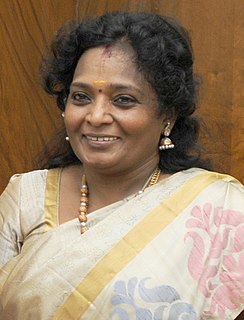A Quote by Michael Dell
The world got enamored with smartphones and tablets, but what's interesting is those devices don't do everything that needs to be done. Three-D printing, virtual-reality computing, robotics are all controlled by PCs.
Related Quotes
We have artificial intelligence, virtual reality, augmented reality, 3D-printing, robotics and nanotechnology that have changed the face of modern medicine. It is essential for Indian doctors to familiarise themselves with the latest developments to be able to control technology and not the other way around.
If you look back over the history of computing, it started as mainframes or terminals. As PCs or work stations became prevalent, computing moved to the edge, and we had applications that took advantage of edge computing and the CPU and processing power at the edge. Cloud computing brought things back to the center.
I'm excited about mobile; clearly that's important. Mobile devices are kind of at the opposite end of PCs, in that PCs are pretty open and you can do a fair amount with them, but many mobile devices aren't. We're excited at the idea that we can make the same kind of contribution in the mobile space. So that's one thing coming down the pike.
Computers and computing are all around us. Some computing is highly visible, like your laptop. But this is only part of a computing iceberg. A lot more lies hidden below the surface. We don't see and usually don't think about the computers inside appliances, cars, airplanes, cameras, smartphones, GPS navigators and games.
Cloud computing, smartphones, social media platforms, and Internet of Things devices have already transformed how we communicate, work, shop, and socialize. These technologies gather unprecedented data streams leading to formidable challenges around privacy, profiling, manipulation, and personal safety.
If you're having a very high-adrenaline, high-movement experience in virtual reality, and then all of a sudden you're back in your office, that disconnect is pretty notable. Whereas if you're using it for virtual reality teleconferencing... there's really no kind of impact moving back and forth between the real and the virtual world.

































